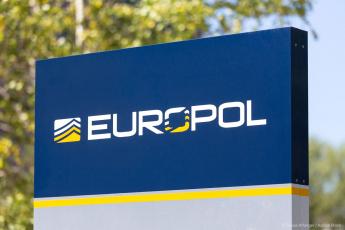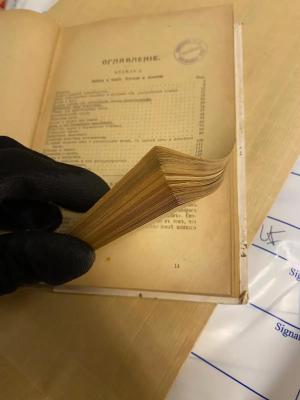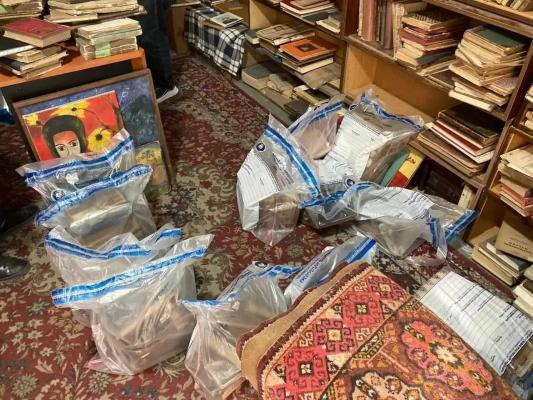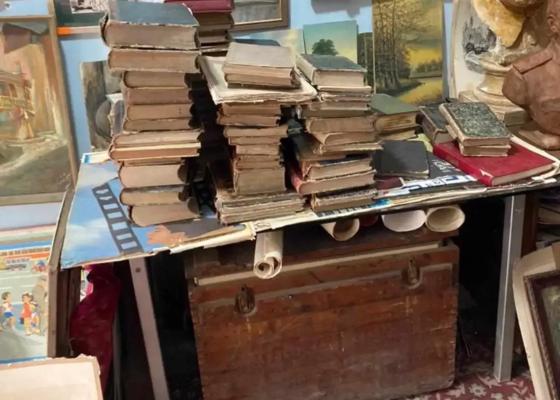Europol announces arrests related to Russian literature thefts in European libraries

Over the past few months, ILAB has been keeping its members informed of news relating to the major series of thefts of Russian literature from libraries across Europe. A successful Europe-wide operation coordinated by Europol and involving over 100 law enforcement officers has now led to a very positive outcome of the investigation and the criminals have been arrested. The official announcement released by Europol on 25 April 2024 can be read below.
Many of the stolen books have been added to ILAB's Missing Books Register after being reported by the libraries concerned.
ILAB is now awaiting information from the libraries on any recovered material and will update its records accordingly.
Press Release by Europol, 25 April 2024
9 Georgian nationals arrested for stealing antique books
Criminal group exchanged historical editions with sophisticated copies, causing EUR 2 500 000 in damages
During an action day supported by Europol and Eurojust and executed on 24 April 2024 in Georgia and Latvia, four Georgians suspected of stealing antique and rare books from libraries across Europe were taken into custody. In total, the criminal group is believed to be responsible for the theft of at least 170 books, causing financial damages amounting to around EUR 2 500 000 and an immeasurable patrimonial loss to society. Some of these stolen historical artefacts were sold via auction houses in St. Petersburg and Moscow, effectively making them irrecoverable. Leading up to the action day, three suspects had been arrested in Estonia, France and Lithuania, with another two suspects under judicial supervision in France.
Over 100 law enforcement officials were deployed on the action day in Georgia and Latvia, searching 27 locations in total. In addition to arresting four suspects, officers on the scene secured over 150 books in order to establish their provenance. One of the books the criminals had stolen in France could already be recovered.
Straightforward yet sophisticated modus operandi
In 2022 and 2023, the criminal group managed to steal rare books from national and historical libraries in Czechia, Estonia, Finland, France, Germany, Latvia, Lithuania, Poland and Switzerland. The thieves would target rare books by mainly Russian writers, such as first editions authored by the likes of Alexander Pushkin or Nikolai Gogol.
When visiting libraries, the thieves would request to check the antique books in person, feigning a specific such as academic interest. On this occasion, they would meticulously measure the books and take photographs before handing them back. Several days, weeks, or months later, the perpetrators would return and ask to access the same books, this time returning counterfeit versions. Experts have established that the copies were of outstanding quality.
In other cases, the perpetrators relied on a more crude approach and simply broke into libraries. In preparation of the thefts, they would typically visit libraries and research the books they later stole.
International effort to tackle cultural goods theft
The international investigation came to life after France sent a SIENA message to Europol, which prompted further partners to confirm they had identified similar modi operandi in their territories. With reports of rare and historical books being stolen across Europe, Europol facilitated the information exchange between the affected countries and helped to identify the main suspects, three of which were swiftly apprehended. Europol’s analysis on this case helped to create links, identify leads and even uncover a theft that had not yet been discovered. Developing this investigation from the very beginning, Europol’s experts reached out to law enforcement in the affected countries to register the stolen antiques in the relevant databases. Leading up to the action day, two operational meetings were held in the Europol headquarters in The Hague, Netherlands.
In Georgia, authorities opened an investigation to identify and locate several members of the organised crime group. Supported and funded by Eurojust, a joint investigative team involving France, Georgia, Lithuania, Poland, Switzerland as well as Europol was formed. A coordination centre was established at Eurojust on the action day.
Joint investigation team:
France, Georgia, Lithuania, Poland, Switzerland
Participating countries:
Czechia, Estonia, Finland, Germany, Latvia
Participating agencies:
Europol, Eurojust






